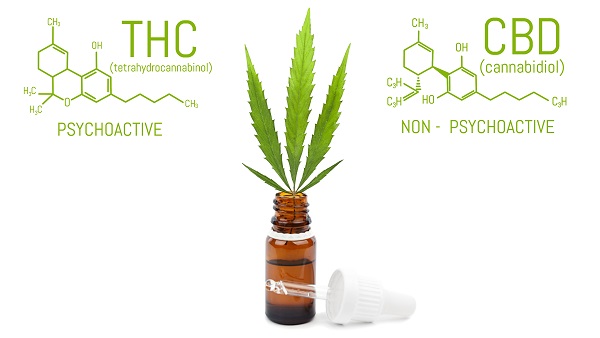The rise of Cannabidiol (CBD) and medicinal Cannabis (THC)
Cannabis – The Future of Health and Wellness
Cannabis has arrived in Europe. While recreational cannabis is still illegal, medical cannabis and hemp-derived CBD products are constantly growing in popularity and spreading throughout the continent.
While the industry is still in its infancy, the potential is enormous. The legal cannabis market in Europe is predicted to reach €3.2 billion by 2025*, and by the end of 2021, the CBD market is expected to hit €800 million in sales in the UK alone**.
These numbers are not surprising. People are ready to explore how different products can benefit their lives. More than 27% of Europeans have already tried it, with 7.6% having tried it for the first time as recently as last year.***
As is often the case with any new industry, the potential for success, as well as the risk of failure, is high.
One of the best ways to ensure your products survive any fluctuation and unpredictable challenges is to invest in quality. Years after years, brands which have decided to provide their customers with excellent, high-quality products have ended up leading the race.
This industry is no different. The European market is far from being saturated, and the potential for making a profit is very high. But this might soon change. And when that change occurs, the only businesses that will thrive are the ones that make the right and responsible choices today.
What Are Cannabinoids?
Cannabis has at least 113 different cannabinoids that we know of. These cannabinoids are compounds found in the cannabis plant, and their primary role is to interact with cannabinoid receptors which can be found in many living organisms, including humans and animals.
The receptors are a part of the endocannabinoid system, which is involved in regulating many basic functions, such as appetite, memory, mood, and pain. A properly functioning endocannabinoid system is key to a well-functioning body.
The human body is capable of producing its own chemical compounds that also interact with the endocannabinoid system.
A lot more research still needs to be done to fully understand the plant, its properties, and potential health benefits. However, we do know that cannabinoids extracted from cannabis interact with the human endocannabinoid system in the same way as cannabinoids produced by the human body. As a result, cannabinoids used appropriately can support the activities of an endocannabinoid system and positively influence the human body.
CBD vs THC: What Is the Difference?

CBD and THC are by far the two most popular cannabinoids.
Both CBD and THC occur naturally in cannabis, although they vary in amounts depending on the variety and what strain type the plant is. This means that businesses that focus on CBD products will work with different raw materials compared to those producing medical cannabis.
Both of these cannabinoids interact with the endocannabinoid system in the same way, but there are also clear and significant differences between the two.
CBD – Cannabidiol
CBD is a non-psychoactive cannabinoid that is legal to produce, sell and use in Europe. While each European country has its own set of rules and regulations on the exact amounts of accompanying ingredients allowed in CBD products, the consensus is that it is both safe to use and legal to sell.
CBD produced in Europe needs to be extracted from hemp. Hemp is a variety of cannabis plant that can be used for both industrial and commercial purposes. It is rich in CBD but contains very low levels of THC.
The amount of THC allowed in hemp depends on local laws and regulations, but most countries in Europe usually permit between 0.2% and 0.3% of THC content.
Hemp is known for its ability to purify and improve the quality of the soil it is grown on by extracting harmful chemicals from the ground. In order to avoid a transfer of harmful ingredients into CBD products sold to the public, it is crucial to extract it from organically grown hemp.
Because of the low THC content, getting permission to grow hemp is relatively easy. Hemp-derived products can be sold as a diet supplement and does not require any prescription (although consultation with a doctor is advised).
Because of the supplement status CBD has, it is widely available in high-street shops, drugstores, pharmacies, and multiple online retailers.
THC – TetraHydroCannabidol
THC is the cannabinoid responsible for the psychoactive effects of cannabis and is currently illegal in all European countries.
Growing, selling, and possession of high-THC products is not allowed, although many activist groups are calling for this to change. Countries such as Malta and Luxembourg are openly discussing the possibility of legalising recreational use in the near future, and Germany is slowly shaping itself to become the leader in the field of medical cannabis.
While countries like Canada and Mexico, as well as selected states in the US, allow its consumption for recreational purposes, Europe only permits its distribution and possession for medical purposes.
Every European country makes an independent decision on which citizens can have access to medical cannabis. This is usually based on the type of illness the patients are suffering from.
Even though medical use is legal across large parts of Europe, access to it is highly restricted due to the lack of training for medical professionals in charge of prescribing it to patients.
It is believed that with more training and research, the THC medical cannabis market in Europe will keep on growing. With many countries around the world running pilot programs to research the consequences of legalising medical and recreational use, the European attitude towards THC-rich products is expected to change drastically by 2025.
What Are the Potential Benefits of Cannabis?
Both the THC and CBD markets are driven by recent discoveries regarding the potential benefits of cannabis on human health.
Early research suggests cannabis can have incredible healing properties. While more research needs to be done to confirm the findings fully, preliminary tests and pilot programs in various countries show that it can help with a variety of issues, from sleeplessness and anxiety to symptom-management in severe conditions such as MS, Epilepsy, Turrets and Cancer.
CBD has been shown to have anti-inflammatory properties. It is sold as a supplement aiming at helping reduce stress, relieve pain, improve sleep, and help calm joint and skin inflammation. Hemp-derived CBD is also rich in essential fatty acids, Omegas 3 and 6, magnesium, zink, B vitamins and much more.
THC has been shown to provide outstanding support to people who fight chronic conditions. In countries where the use of medical marijuana is more common, patients suffering from depression, IBS, Crohn’s disease, MS (and other autoimmune diseases), chronic pain, sleeplessness, and those going through chemotherapy can request access to medical cannabis.
While more research needs to be done to confirm the different healing properties of this plant, more and more people are reaching out for it every day, as the potential benefits come with a relatively low list of side effects.
The scientific community needs time and money to complete all the research necessary to legitimise the use of cannabis for medical purposes, but the industry has already started to develop, and it will continue to grow for as long as people are willing to use it.
RESOURCES
*The European Cannabis Report: 6th Edition, Prohibition Partners
**Green shoots Report: Sowing the seeds of the new UK
***Statistical Bulletin 2020, European Monitoring Centre for Drugs and Drug Addiction
